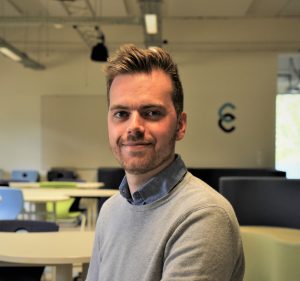This session consist of five presentations.
Featured Speakers
Dirk Lens, Academic Software:
Translating digital transformation into action: insights from Academic Software’s experience with three Belgian universities #19
We discuss insights into supporting flexibility in higher education institutions’ ICT highlighting strategic and operational factors that could work against the necessary ICT configurations for flexibility. We explore hyflex configurations, which include ensuring technology works well for both online and in-person students, providing ongoing technical support, and ensuring that technology infrastructure is reliable, scalable, and secure. We discuss how silo-ed solutions can lead to vulnerabilities in security measures, uneven access to technology, and issues with data and oversight. The insights presented in this paper were drawn from the experiences of three Belgian universities that have leveraged flexibility to support digital transformation.
Download the presentation
Juan Antonio Martínez-Carrascal, Universitat Autònoma de Barcelona:
Designing learning spaces in the digital era: new approaches for new ways of learning #25
Higher education institutions are promoting new modes of learning: it is necessary to create new coworking, knowledge distribution, and collaborative venues and to re-evaluate traditional venues. We examine the initial design of these physical, virtual or hybrid spaces, and the new requirements they must meet. In addition to the theoretical foundations, this reflects the effort at the Universitat Autònoma de Barcelona to accommodate spaces for the new emergent requirements and offers recommendations for institutions considering this redefinition.
Download the presentation
Giorgios Roussos, Aristotle University, Thessaloniki:
Angeliki Agorogianni, Aristotle University, Thessaloniki:
A New Digital Era for European Universities: Implementing Large-scale AV Projects for the Next Generation Digital Hybrid Classrooms – A quick-start guide from 0 to 10: Challenges, Benefits, Pitfalls #35
This presentation examines the challenges, benefits, and things to avoid when implementing AV projects in European universities. The paper also presents a roadmap for universities to successfully implement AV projects from 0 to 10, considering the necessary steps, resources, and expertise required at each stage. With careful planning, investment, and collaboration among all stakeholders, universities can successfully implement AV projects and realize the benefits of a new digital era for higher education.
Download the presentation – coming soon
Hilmar Salac, Panasonic
Sebastian Kurte-Breul, University of Kassel:
Hybrid and Blanded Learning Case study with University of Kassel
Hybrid teaching formats play a crucial role in supporting digital higher education by combining in-person and online elements. They provide flexibility, accessibility, interactive learning environments, personalized learning, access to extensive digital resources, and improved monitoring and feedback. Overall, hybrid formats offer a versatile and modern learning environment that meets the needs of today’s students. Panasonic together with Panopto as powerful glass-to-glass solution. Centralized, automized and scalable.
Download the presentation
Siem Buseyne, University of Lille
Hyacinthe Lesecq, University of Lille:
The Lille Learning Lab: a living lab for education, training, and research
The Lille Learning Lab (LLL) is a project of the ULille aimed at creating experimental learning spaces for innovative teaching and learning. This presentation looks at some of the technology-enhanced learning spaces (TELS) created including a multifunctional hyperflex room that allows group work, simulation learning activities, and hybrid education.
Download the presentation




